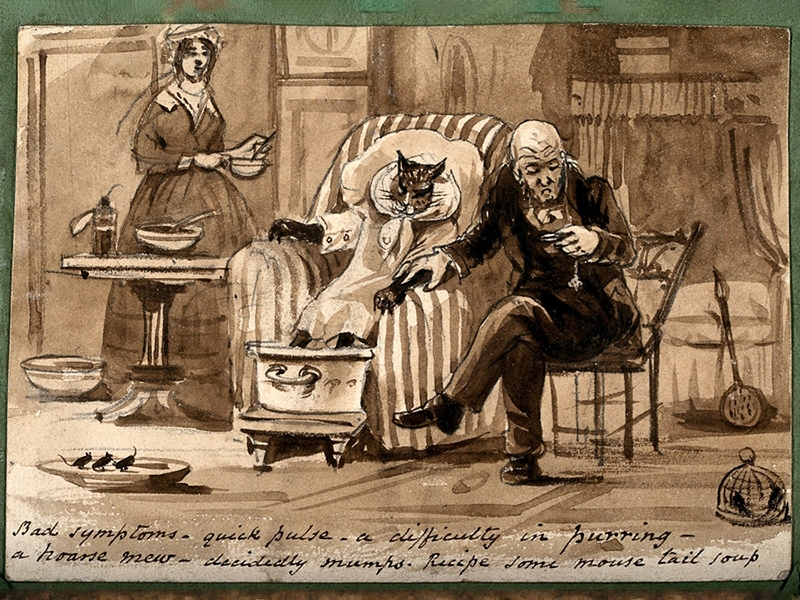The Medical Humanities Program and Department of History will be hosting a talk from professor Matthew P. Romaniello of Weber State University from 11:50 a.m.-12:50 p.m. today, Oct. 6, in Gearhart Hall 130. Historian of empire, medicine, European and colonial trade, and Russian empire, he also serves as editor of the Journal of World History and president of the Forum on Early-Modern Empires and Global Interactions.
Romaniello is the author of Enterprising Empires: Russia and Britain in the Eighteenth Century and The Elusive Empire: Kazan and the Creation of Russia, 1552-1671, and editor or coeditor of five other volumes. He is currently finishing a study of public health and the regulation of colonial bodies in the Russian Empire, as well as a book on early-modern commodities that failed to transition to the modern era.
In his talk, "An Epidemic Disease of a Very Singular Nature: Discovering the Mumps in the Eighteenth-Century," Romaniello argues that while mumps was a common childhood illness, known by the public, it was largely ignored by physicians until the middle of the 18th century.
The first study of mumps in English based on case notes was published by Dr. Richard Russell in his Oeconomy of Nature in Acute and Chronical Diseases of the Glands (1755), followed by a surgeon's observations, when Benjamin Gooch published Cases and Practical Remarks in Surgery (1758). The two publications sparked an interest in the medical community, as they arrived at a moment when debates among neo-Hippocratic, miasmatic and contagionist advocates were reaching a peak.
Romaniello argues that while specialists in diseases focused primarily on those pandemics with high mortality rates, "ordinary" illnesses like the mumps provided an alternative view on one of the most contentious issues in medical practice. Unpacking the history of diagnosing and treating the mumps provides a test case for understanding the evolving arguments about diseases and their impact on the health of the public.
Students, faculty and the public are all invited to the talk. Pizza will be served.
Topics
Contacts
Trish Starks, Distinguished Professor and director
of the Arkansas Humanities Center Department of History
479-575-7592, tstarks@uark.edu
